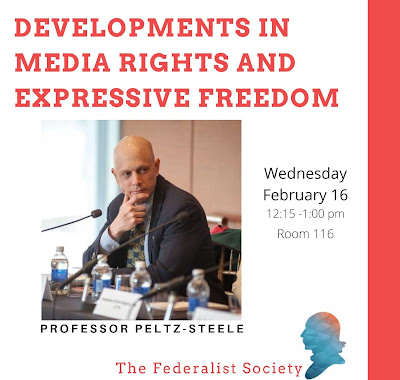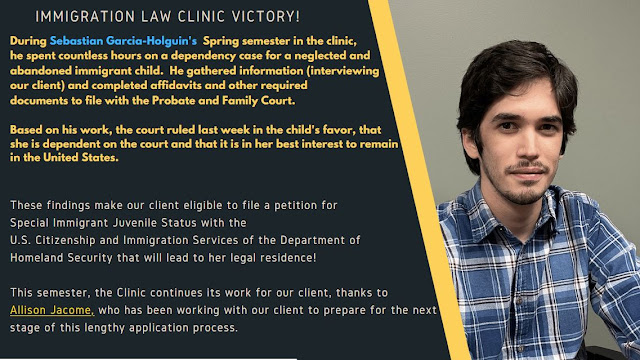I
wrote in 2020 about the pay cuts foisted on faculty and staff at UMass Dartmouth. We're a union shop, which is weird for university faculty in the United States, but at least is supposed to be good for workers. So for my pay cut—about 11.6%, plus $4k in professional development budget, over one calendar year, so far—the union got me, in return—wait, let me punch the numbers into the calculator—
Nothing.
I quit my union membership once and for all, before the ink dried on the union's Memorandum of Abdication. But thanks to the compulsory representation law in Massachusetts, I'm still bound to give away anything the union, with its refined talents at the bargaining table, decides that I should give away.
Let me interject a disclaimer that I am not complaining about having a job during the pandemic. As will become clear momentarily, I am writing about this for the very reason that my concern extends to the many persons who are not as fortunate. I push myself every day, literally every day, to count my blessings and be grateful, and to find a way to show compassion for those facing hardships during this crisis. Some days I do better than other days.
With regard to my personal situation, I suggest, I hope modestly, only that in exchange for a pay cut, there might have been some benefit afforded in return: maybe a leniency in job requirements, such as research or teaching load; maybe flexibility in course scheduling; maybe an "IOU" for development budget down the road. I might could have been bought off for the price of some reference books from my wish list. Or a new hoodie. I can always use a hoodie.
I suggested these bargaining chips (except the hoodie) to the union. No response. I understand. It takes a lot of energy and focus to give so much away in so short a time.
But this isn't about the union. Not today. Today I write about another bloated bureaucracy feeding ironically at taxpayer teats: the Massachusetts Department of Unemployment Assistance, or "Mass UI."
I was given the option, which I accepted, to take part of my pay cut as furlough during the holidays in December. There was absolutely no reduction to my workload in December, so one might question the utility of a furlough. But the idea was, the university told us if carefully to disclaim any guarantee, we could claim unemployment insurance to recover a fraction of four days' pay. It happens that my wife, who also works for the university as an administrator, also took a pay cut (two, actually, for staff) and furlough (also two). I'm trying to leave her out of this, and I definitely do not speak for her, so I will tell only what I have to to get my story across.
Let me interject again: As a taxpayer, I am not a fan of one financially stressed public institution shoving its accounts payable off on another financially stressed public institution. That doesn't seem to me to be an efficient way to solve the problem of stress on the fisc. But I don't make the rules. We've got a kid in college. I'm not leaving money on the table.
So we both filed, at different times in 2020, for whatever unemployment insurance we might recoup.
My wife's online account access was immediately shut down, purportedly in response to a spate of fraudulent claims received by Mass UI. While her access was blocked, Mass UI (claims that it) sent an electronic request for documents to confirm her identity. She didn't know about any request, because access was blocked. She couldn't file the docs, even if she'd known to, because access was blocked. Meanwhile, Mass UI confirmed the validity of her claim with university HR.
And then Mass UI denied her claim anyway for supposed failure to provide ID. She didn't even find out about the denial until months later, because, say it with me, access was blocked.
Having witnessed that mess of an experience, I set my account for hard-copy correspondence only, by mail. Mass UI sent to me, in hard copy, a request for documents to confirm my identity. Promptly, I returned, in hard copy, the documents requested. Presumably, Mass UI could confirm my identity, too, and the legitimacy of my claim, with the university. I work for the state, after all. But I was trying to play nice.
Twenty days later, Mass UI denied my claim anyway for supposed failure to provide ID.
We both now have appeals pending. I expect we will have to go to Boston for hearings (50 miles and two hours each way, expensive parking, different days). As yet, the hearings have not been scheduled. My wife's first claim dates back to the summer, in the heyday of federal subsidies. Good times.
As I just wrote to the Commonwealth Attorney General, at some point, misfeasance slides into malfeasance. I don't know what's going on at Mass UI. But it's inexcusable.
And that brings me back around to people who are really hurt by this kind of misfeasance or malfeasance by public officials. People already are suffering for so many reasons: pandemic risk, joblessness, homelessness, systemic disadvantages of race and socioeconomics. If my family's experience with Mass UI has resulted in two out of two legitimate, easily confirmed claims being rejected on nakedly indefensible, if not outrightly false, grounds, then how many claims are being wrongfully denied for claimants who are depending on unemployment assistance in a time of crisis?
Look, we're lucky. I know it. We're both lawyers. We have the know-how to appeal, and to sue if necessary. We have the flexibility in our work to adjust our schedules for hearings, and a car to go to Boston if we have to. We make decent money, even after pay cuts, educational loan debt, and college tuition bills. We'll be OK.
But today is one of those days that I feel like I'm falling short on compassionate action. I should do something. Something should be done.
I don't know what. Or how.
I do suspect that Mass UI is running the vaccine roll-out.
This blog is mine and mine alone, and not a product of my
employer. I speak as a private
citizen, not a representative of the university, even if my writing sometimes also serves public interests, which is part of my job. I
reference my job and work profile on this blog for purpose of identification
only. While this disclaimer always pertains, I wish to emphasize it
today.
UPDATE, Feb. 16, 2021: Our IDs were accepted and matters remanded from appeal to reprocessing thanks to heroic intervention, for which we are grateful, by an individual in the UMass Dartmouth HR office. Of course, that doesn't alleviate our concerns about people in Massachusetts who are in serious need. WGBH reported on February 8 on "shocking[] dysfunction[]" in the system, having exactly the impact we feared.


















